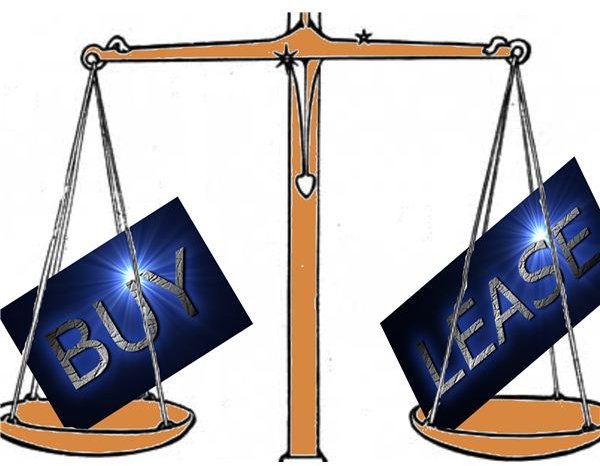Make Wiser Purchase Decisions with a Lease vs. Buy Analysis
Investments in technology and equipment or other business assets have a major financial implication, and thus such decisions must be made only after a thoughtful analysis. This is all the more important for small business owners and entrepreneurs who have limited financial reserves. Shelling out huge sums of money to procure business assets can have a devastating effect on cash flow. Nonetheless, acquiring them is indispensable. That’s when entrepreneurs must consider whether outright purchase or leasing makes more sense. Conducting a lease vs. buy analysis will help identify which of the two options will be finance friendly for the business.
Financial Aspects of the Analysis
Initial Cost
Outright purchase implies a heavy initial financial burden. The cost of the equipment or asset must be paid in full at the very time of purchase. While it may not be a problem for most well established firms, entrepreneurial ventures usually find it difficult to amass bigger sums and invest them all on a single asset. Thus, if your business doesn’t have enough ready cash available to fund the purchase or if hoarding all your cash reserves for a single asset disrupts the normal cash flow of your business, a lease contract is the way to go. The initial security deposit for a lease is comparatively much lower and is not likely to strain your business finances too much.
Depreciation and Appreciation
The next important financial consideration is the depreciation on the asset. In the case of a lease contract the loss in value due to depreciation doesn’t go into your account, while in the case of purchase this loss will be all yours. While most equipment will depreciate in value, there are assets like property and real estate which usually appreciate in value. Accordingly, taking such assets on lease will deprive you of the value appreciation benefit.
Interest on Capital
Here the advantage again lies in procuring assets through lease. That’s because with a lease agreement you will be paying only monthly installments, and the balance money that you would have otherwise spent on purchasing an asset will keep on earning interest for you, as long as you hold it in your bank account.
Tax Benefits
The payments made toward a lease contract are completely tax deductible, while that’s not the case with the amount spent on
buying an asset.
Repairs, Maintenance and Improvements
These costs would vary depending on how your lease agreement is structured. If the leasing firm pays for all the repairs and maintenance during the lease period, you certainly stand at an advantage. However, if you have to bear these costs then the situation remains the same whether you take it on lease or purchase it. A more important consideration here will be the cost of modifications that improve the overall value of the asset. In most cases the leasing firm may ask you to remove all modifications before returning the asset to them, and all the money spent on the modifications is likely to be a loss for your business.
End of the Life Value
At the end of the lease you have nothing in your hand; however when you buy an asset, the money earned through its final disposal will add up to your finances.
Conducting the Analysis
The analysis is based on the concept of net present value (NPV). The net present value of buying an asset is compared with the net present value of taking it on lease, to determine which one offers a more profitable scenario for the business.
The net present value of buying an asset takes into account the initial purchase amount, depreciation, end-of-life value and the interest rate. And, the NPV of a lease contract is calculated using security deposit, total of monthly lease installments and the interest earned on the balance amount. The calculations are somewhat complex, and we’d suggest using some software or an online application to keep things simple. There are lots of online calculators that make it quick and easy to perform a lease vs. buy analysis and find out which of the two is more profitable for the business. The references section below contains links to a few such online calculators.
References & Credits:
- Pruitt, Scarlet; San Francisco Chronicle: Should You Buy or Lease Your Technology?
- BusinessLink.gov.UK. Decide Whether to Lease or Buy Assets.
Links to Online Calculators:
- Lease Vs. Buy Calculator from University of Central Michigan.
- Lease Vs. Buy Analysis from New England Businss Service (NEBS).
Image Credit:
Image by – Sidharth Thakur
